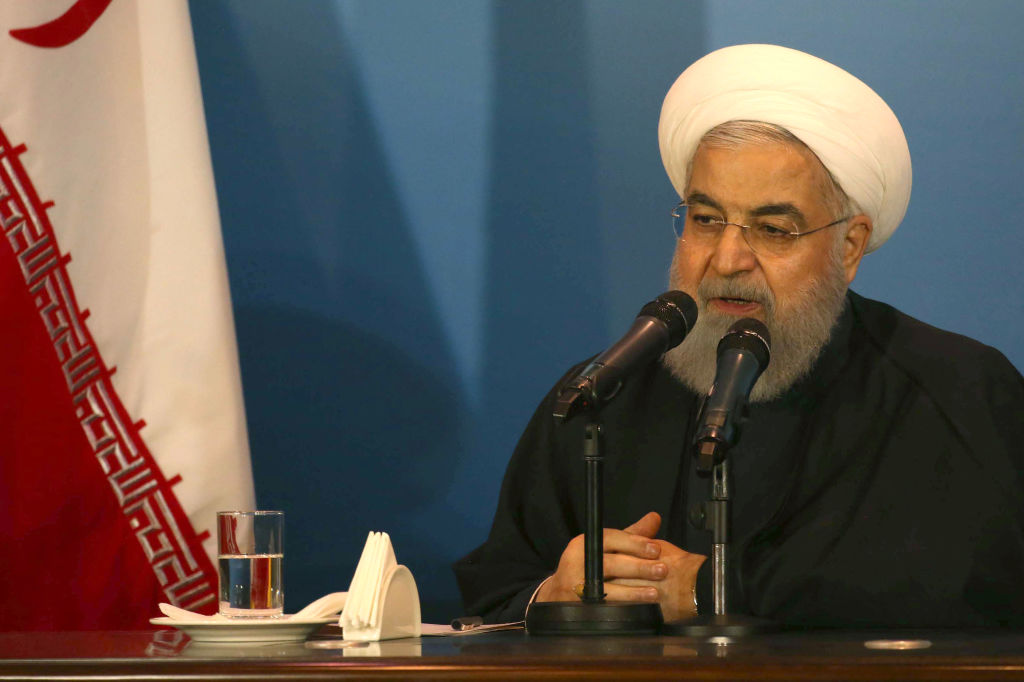Iran says it will begin phased withdrawal from 2015 nuclear accord after U.S. obstruction


A free daily email with the biggest news stories of the day – and the best features from TheWeek.com
You are now subscribed
Your newsletter sign-up was successful
Iranian President Hassan Rouhani said Wednesday that Iran will partially withdraw from a 2015 nuclear deal signed with the U.S., France, Britain, Germany, Russia, and China, one year after President Trump unilaterally withdrew the U.S. from the agreement. Rouhani said Iran is not withdrawing from the deal but reducing its "commitments," starting with no longer exporting its excess uranium and heavy water from its civilian nuclear program. "This surgery is to save the (deal), not destroy it," Rouhani said.
If Iran and the five other remaining signatories to the deal can't fix it within 60 days to get around U.S. measure to isolate Iran, Iran will resume enriching uranium above the 3.67 percent enshrined in the deal and "stop compliance with its other undertakings in consequent phases," Iran's Supreme National Security Council said in a statement. But, Rouhani said, "if the five countries join negotiations and help Iran to reach its benefits in the field of oil and banking, Iran will return to its commitments according to the nuclear deal."
The deal reduced Iran's low-enriched uranium stockpile to 660 lbs, from 22,046 lbs. of higher-enriched uranium beforehand. Last week, the Trump administration revoked waivers allowing it to trade its excess enriched uranium to Russia and sell extra heavy water to Oman, "effectively forcing Iran to halt enrichment or ignore the limits, which it is now doing," CNN notes. Rouhani blamed U.S. "hardliners" for the situation, saying the 2015 nuclear deal is "in the interests of the region and the world, but not the enemies of Iran, therefore they spared no effort since 2015 to undermine" it.
The Week
Escape your echo chamber. Get the facts behind the news, plus analysis from multiple perspectives.

Sign up for The Week's Free Newsletters
From our morning news briefing to a weekly Good News Newsletter, get the best of The Week delivered directly to your inbox.
From our morning news briefing to a weekly Good News Newsletter, get the best of The Week delivered directly to your inbox.
Trump's team has also hit Iran with all the nuclear-related sanctions lifted under the agreement, ended waivers for countries buying Iranian crude oil, recently designated Iran's elite Revolutionary Guard as a terrorist organization, and announced Sunday that it is sending more battleships into the Persian Gulf to respond to a purported Iranian threat.
A free daily email with the biggest news stories of the day – and the best features from TheWeek.com
Peter has worked as a news and culture writer and editor at The Week since the site's launch in 2008. He covers politics, world affairs, religion and cultural currents. His journalism career began as a copy editor at a financial newswire and has included editorial positions at The New York Times Magazine, Facts on File, and Oregon State University.
